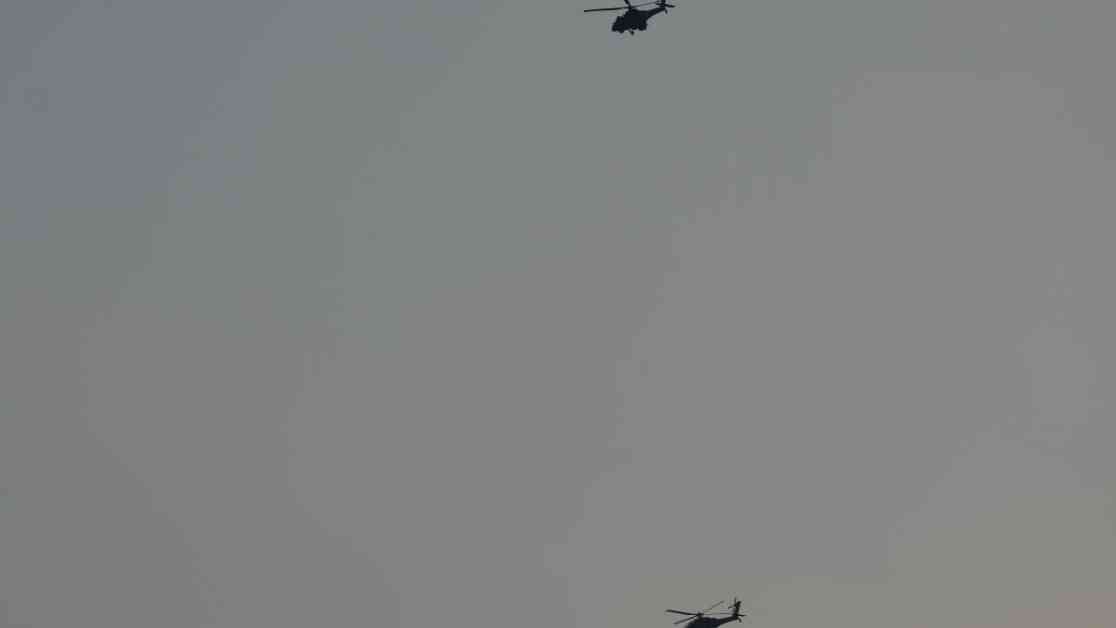The conflict between Israel and Hezbollah is escalating rapidly, with attacks being exchanged in a sharp escalation that has raised concerns about the possibility of a full-on regional war. The Israeli military launched preemptive strikes in Lebanon against Hezbollah early Sunday morning, intensifying already heightened tensions in the region.
Israeli Preemptive Strikes
The Israeli military justified the strikes as necessary to prevent Hezbollah from firing missiles and rockets into Israeli territory. More than 100 warplanes were reportedly used to target thousands of rocket launchers in southern Lebanon. The airstrikes caused a series of explosions in Lebanese towns and villages, with residents describing the intensity and power of the strikes as unprecedented.
One resident in Ibl al-Saqi, a town near the Lebanese-Israeli border, recounted how the whole town shook from the impact of the strikes. The attacks resulted in the death of one person and injuries to two others, as well as extensive damage to water and electricity infrastructure in southern Lebanon. Israel declared a state of emergency for 48 hours and temporarily suspended flights from Tel Aviv’s Ben Gurion International Airport.
Hezbollah Retaliates
In response to the Israeli airstrikes, Hezbollah launched a barrage of around 320 Katyusha rockets targeting military sites in northern Israel. The group stated that this was a preliminary response to the assassination of its senior military commander, Fuad Shukr, and the killing of civilians in previous Israeli strikes. Hezbollah also launched drones targeting what it described as a “qualitative Israeli military target.”
Hezbollah emphasized that the attacks were carried out on Arbaeen, a significant day for Shiite Muslims, marking the end of a 40-day mourning period. The group warned of severe consequences if civilians were harmed in the conflict, emphasizing its readiness to defend itself against Israeli aggression.
Escalating Tensions
The recent escalation in violence comes after a series of assassinations and attacks in the region. The killings of Shukr and Hamas political leader Ismail Haniyeh have heightened tensions between Israel, Hezbollah, and Iran. Both Israel and Hezbollah have blamed each other for attacks and retaliations, leading to a dangerous cycle of violence.
Efforts to negotiate a ceasefire in the Gaza Strip have been overshadowed by the escalating conflict between Israel and Hezbollah. The United States has been leading diplomatic efforts to calm the situation, but the ongoing hostilities threaten to derail any potential peace talks.
Humanitarian Crisis
The continuous violence in the region has led to a humanitarian crisis, with thousands of people killed, injured, and displaced. Both Hezbollah and Israel have suffered casualties, including fighters and civilians. The toll on infrastructure and basic services in southern Lebanon and northern Israel has further exacerbated the situation, leaving many vulnerable and in need of assistance.
The United Nations has been monitoring the conflict closely, documenting the impact on civilians and urging all parties to prioritize the protection of non-combatants. The indiscriminate targeting of populated areas has raised concerns about violations of international humanitarian law and the need for accountability for any war crimes committed during the conflict.
As the violence continues to escalate, there are growing fears of a wider regional conflict involving other actors in the Middle East. The involvement of Iran, a key supporter of Hezbollah, adds another layer of complexity to the situation, with the potential for the conflict to spill over into neighboring countries and disrupt regional stability.
The international community has called for an immediate cessation of hostilities and a return to dialogue to resolve the underlying issues fueling the conflict. Diplomatic efforts are underway to de-escalate the situation and prevent further loss of life and destruction in the region.
In conclusion, the Israel-Hezbollah conflict has reached a critical point, with both sides engaged in escalating attacks that threaten to spiral into a full-blown regional war. The impact on civilians and infrastructure is devastating, highlighting the urgent need for a peaceful resolution to the crisis. The international community must work together to bring an end to the violence and support efforts to rebuild trust and stability in the region.



























